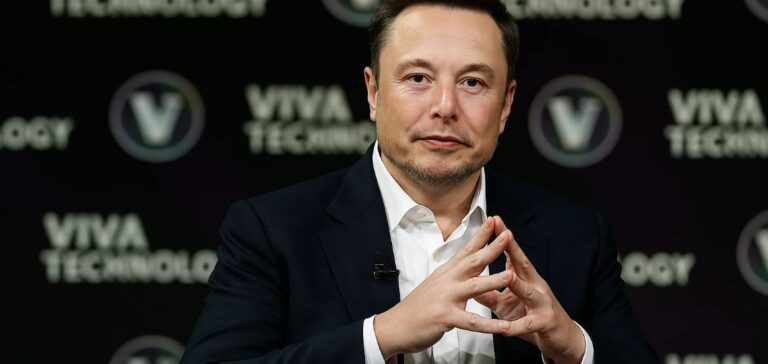Elon Musk announced that he will significantly reduce his involvement in the Government Efficiency Commission (Doge), created by Donald Trump, starting in May. This decision comes after a quarter marked by a decline in Tesla’s sales and increased tensions surrounding the electric vehicle manufacturer’s image.
Tesla’s CEO stated that his contribution to Doge would “decrease significantly,” believing that the “crucial work” of the commission was “largely completed.” He made this statement during a conference call with analysts on Tuesday, following the publication of the first-quarter results.
Pressure on sales and damaged image
Tesla delivered 336,681 vehicles globally in the first three months of the year, a 13% drop compared to the previous year. The company’s Chief Financial Officer, Vaibhav Taneja, cited vandalism, calls for boycotts, and increasing hostility towards the brand as factors affecting performance in certain markets, particularly in Europe and the United States.
Protests against Musk’s involvement in the Trump administration were also reported, adding to the commercial difficulties faced by Tesla. The link between the CEO and the U.S. government is said to have fueled criticism, according to internal statements from the company.
Results below expectations and growing competition
The financial results released on Tuesday show that Tesla experienced a quarter below analysts’ expectations. In addition to the controversies surrounding Musk’s public image, the company was penalized by an aging product range and increasing competitive pressure in the electric vehicle segment.
Tesla’s stock, already known for its volatility, reacted negatively during after-hours trading following the New York Stock Exchange’s closure. No announcements were made regarding immediate changes to the product strategy or international operations.
“We are facing unusual circumstances that require direct attention,” concluded Vaibhav Taneja, without providing specifics on the adjustments being considered in the short term.






















